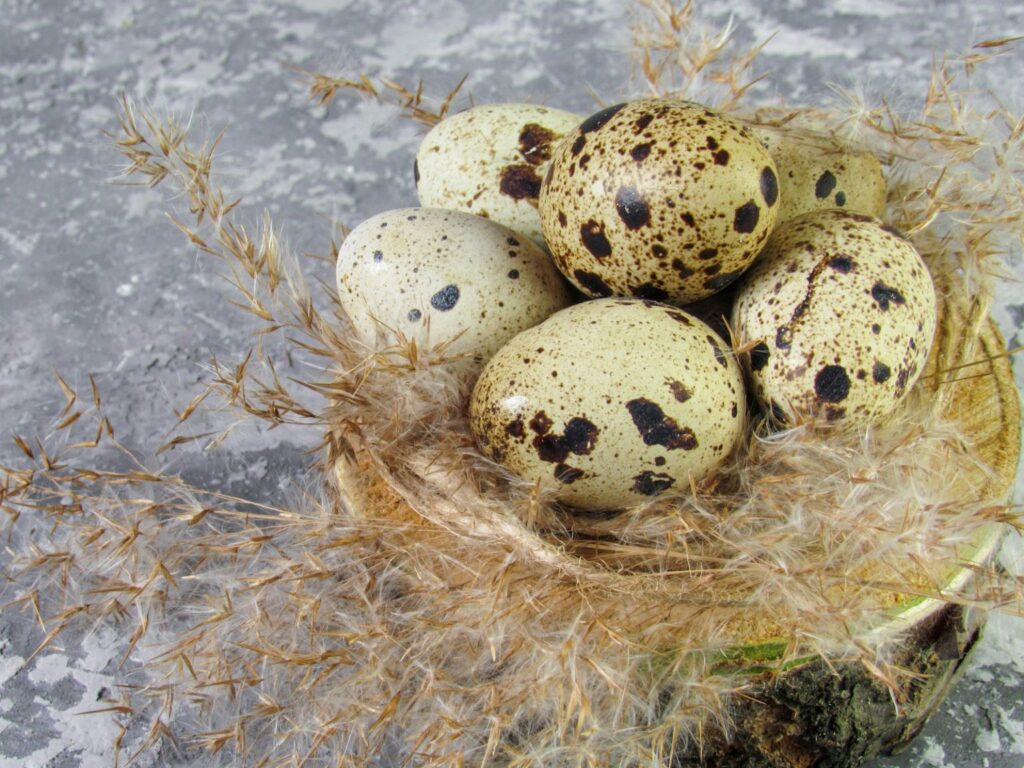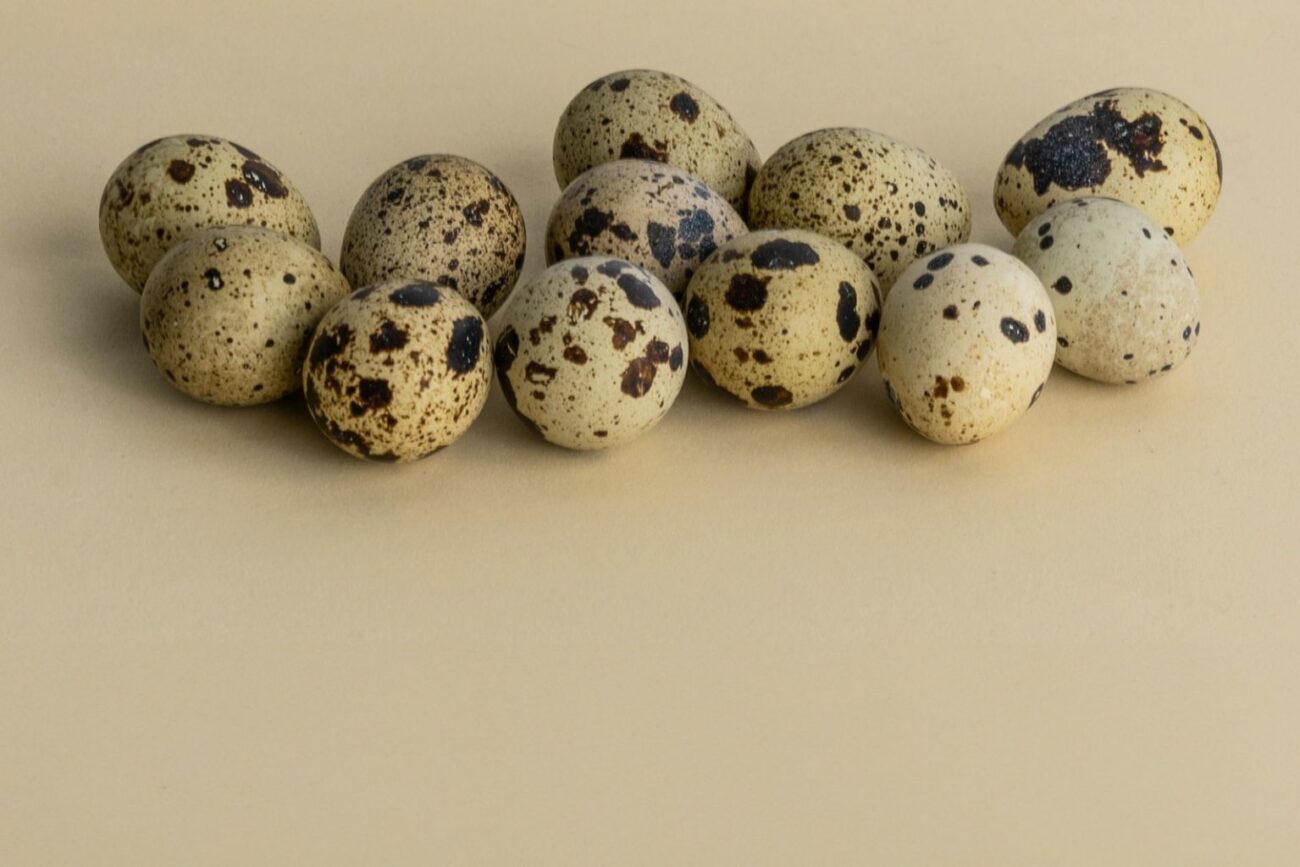In the world of superfoods, quail eggs are often overlooked despite their impressive nutritional profile and numerous health benefits. These tiny eggs, about one-fifth the size of a chicken egg, are a powerhouse of nutrients and have been cherished in various cultures for centuries. Whether you’re a health enthusiast or simply curious about trying new foods, quail eggs are worth adding to your diet.
Let’s explore why they’re considered a superfood, their benefits, and how to enjoy them.
Why Are Quail Eggs Considered a Superfood?
Quail eggs are small but mighty. Despite their size, they contain a concentrated dose of vitamins, minerals, and antioxidants that rival—and in some cases surpass—those found in chicken eggs. Here’s what makes them stand out:
- High in Protein: Quail eggs are an excellent source of high-quality protein, essential for muscle repair, growth, and overall body function.
- Rich in Vitamins: They are packed with vitamins like B12, riboflavin (B2), and vitamin A, which support energy production, vision, and immune health.
- Loaded with Minerals: Quail eggs are a great source of iron, selenium, and zinc, which are vital for blood health, immunity, and metabolism.
- Antioxidant Powerhouse: They contain antioxidants like vitamin E and selenium, which help combat oxidative stress and inflammation.
- Low in Calories: Despite their nutrient density, quail eggs are low in calories, making them a guilt-free addition to your diet.
Health Benefits of Quail Eggs
Quail eggs offer a wide range of health benefits, making them a valuable addition to any diet. Here are some of the top reasons to include them in your meals:
1. Boosts Immune System
Quail eggs are rich in antioxidants and immune-boosting nutrients like vitamin A, selenium, and zinc. These compounds help strengthen your immune system, protecting you from infections and illnesses.
2. Supports Brain Health
The high levels of choline and B vitamins in quail eggs support brain function, improve memory, and enhance cognitive performance. They are particularly beneficial for children’s brain development and older adults looking to maintain mental sharpness.
3. Improves Skin and Hair Health
Quail eggs are a natural source of collagen and antioxidants, which promote healthy skin and hair. The vitamins and minerals in quail eggs help reduce acne, improve skin elasticity, and strengthen hair follicles.
4. Promotes Heart Health
Quail eggs contain heart-healthy nutrients like potassium and omega-3 fatty acids, which help regulate blood pressure and reduce bad cholesterol levels. Their antioxidant properties also protect the heart from oxidative damage.
5. Aids in Detoxification
Quail eggs are known to help detoxify the body by binding to heavy metals and toxins and flushing them out. This makes them a great addition to a cleansing or detox diet.
6. Supports Weight Loss
With their high protein content and low calorie count, quail eggs are an excellent food for weight management. They keep you feeling full longer, reducing the likelihood of overeating.
7. Improves Vision
Quail eggs are rich in vitamin A, which is essential for maintaining good vision and preventing age-related eye disorders like macular degeneration.
8. Enhances Energy Levels
The combination of B vitamins, iron, and protein in quail eggs helps boost energy levels and combat fatigue, making them a great snack for active individuals.
How to Consume Quail Eggs
Quail eggs are incredibly versatile and can be enjoyed in a variety of ways. Here are some ideas to incorporate them into your diet:
1. Boiled
Boiling quail eggs is one of the simplest and most popular ways to enjoy them. They make a great snack or addition to salads and charcuterie boards.
2. Fried or Scrambled
Use quail eggs just like chicken eggs—fry or scramble them for a protein-packed breakfast. Their small size makes them perfect for bite-sized dishes.
3. Raw
In some cultures, quail eggs are consumed raw for their maximum nutritional benefits. However, ensure they are fresh and sourced from a reliable supplier to avoid any risk of contamination.
4. Pickled
Pickled quail eggs are a delicious and tangy treat. They can be stored for longer periods and make a great addition to sandwiches or appetizers.
5. In Baking
Quail eggs can be used in baking to add richness and moisture to cakes, muffins, and other baked goods.
6. As a Topping
Add boiled or fried quail eggs to soups, ramen, or rice dishes for an extra boost of protein and flavor.
How Many Quail Eggs Should You Eat?
While quail eggs are nutritious, moderation is key. For most people, consuming 3-5 quail eggs per day is a safe and healthy amount. However, if you have specific health conditions or dietary restrictions, consult a healthcare professional before making them a regular part of your diet.
Quail Eggs vs. Chicken Eggs
Quail eggs are often compared to chicken eggs, but they have some unique advantages:
- Higher Nutrient Density: Quail eggs contain more vitamins and minerals per gram than chicken eggs.
- Lower Cholesterol: Despite their small size, quail eggs have less cholesterol than chicken eggs.
- Hypoallergenic: Quail eggs are less likely to cause allergies, making them a great alternative for those allergic to chicken eggs.

Quail eggs may be small, but they are a nutritional powerhouse that can benefit your health in numerous ways. From boosting immunity and supporting brain health to promoting glowing skin and aiding weight loss, these tiny eggs deserve a spot in your diet. Whether you enjoy them boiled, fried, or pickled, quail eggs are a delicious and versatile superfood that can elevate your meals and your health.
Have you tried quail eggs before? What’s your favorite way to enjoy them?
Share your thoughts and recipes in the comments below!
Disclaimer: This blog post is for informational purposes only and should not replace professional medical advice. If you have specific health concerns, consult a healthcare provider before making significant changes to your diet.

